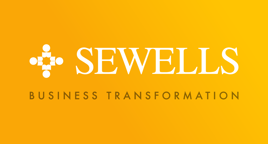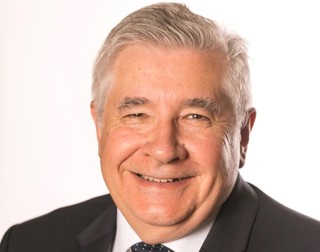 Gail Harrison, managing director of business improvement experts Sewells, offers crucial coaching tips for automotive managers with a reminder that their solution is not necessarily the best one and harnessing the brainpower of employees pays dividends.
Gail Harrison, managing director of business improvement experts Sewells, offers crucial coaching tips for automotive managers with a reminder that their solution is not necessarily the best one and harnessing the brainpower of employees pays dividends.
You don't have to look too far in automotive organisations to find managers who are ninjas at solving problems.
Many managers advance through the organisation via a technical role, they are valued for their experience and expertise and suddenly find themselves managing others.
 Gail Harrison, managing director of business improvement experts Sewells, offers crucial coaching tips for automotive managers with a reminder that their solution is not necessarily the best one and harnessing the brainpower of employees pays dividends.
Gail Harrison, managing director of business improvement experts Sewells, offers crucial coaching tips for automotive managers with a reminder that their solution is not necessarily the best one and harnessing the brainpower of employees pays dividends.
You don't have to look too far in automotive organisations to find managers who are ninjas at solving problems.
Many managers advance through the organisation via a technical role, they are valued for their experience and expertise and suddenly find themselves managing others.
They've been paid for being solution-focused and are used to coming up with answers for any of the myriad of problems facing them on a day-to-day basis.
This can work pretty well except that:
- It means knowledge is held by the few, not the many
- And we aren't doing enough to generate new talent for the future
One of the biggest issues business leaders share with us is the lack of accountability exhibited by many in their teams. But, is it any wonder when we don’t encourage them to think for themselves and provide them with all the answers?
Challenging the Status Quo
What if, as leaders and managers, we don't have to have all the answers?
What if our thinking is crooked or outdated and we're only thinking about things from our own point of view without valuing what others have - experiences and skills which are different from ours?
What if, rather than thinking that we have to have all the answers, we simply get good at asking more questions, getting other’s perspectives, and richer ideas?
The Problem-Solver Paradox
Managers usually see themselves as “the problem solvers” and they've been rewarded for this behaviour. So, how do we ensure we get our managers to take a step back and relinquish control?
How do we get them comfortable with not having all the answers? Instead of offering solutions how do we get managers asking more questions?
While there's certainly a time for offering solutions, if we don't dig deep and encourage our team to think for themselves, we won't create the next generation of brilliant leaders and managers in the industry.
“The minute we begin to think we have all the answers, we forget the questions.” Madeleine L’Engle
Assessing Your Team's Approach
To see how prevalent this is in your business:
- Ask somebody to come up with a challenge that they want some help to solve.
- Ask other team members to simply ask more questions to better understand the issue.
Usually, within two to three minutes, the group will start offering solutions. They simply find it impossible to stay out of solution mode.
We can be guilty of getting in the way of encouraging others to think for themselves. We struggle to stay out of solution mode but if we offer solutions too quickly, when we haven't really understood the full extent of the problem, or how the other person is thinking, we will only offer solutions that work for us.
We also may not fully understand the nature and scope of the issue - “Oh I’ve had that loads of times, what you want to do is…”.
Sometimes the value we add is not in having the answers, it's really listening, giving people space to think and when needed, pushing back with a challenging question.
The Power of Questioning
When we really listen and ask more questions, we allow the individual to come up with their own answers which can be far more creative, far more productive, and far better than anything we can come up with.
It means we are encouraging people to think for themselves, to take control. To take responsibility for the outcome and the actions.
The result? We cultivate a team of thinkers, as well as implementers. When you put thinking and doing together it's true magic.
But it's hard when you feel passionate about something not to jump in with solutions. My question is: How do we know the solution we can come up with is better than the one that someone else can come up with?
If we don't get good at asking questions, we're only going to keep on coming up with the same solutions again and again and again.
Coaching: The Key to Empowerment
Commit to becoming brilliant at coaching. When you coach somebody, a direct report or a colleague, it truly empowers them to find their own solutions.
Coaching:
- Helps individuals become more independent and more self-reliant as they take ownership and responsibility for solving the problem.
- Develops problem-solving and creative thinking skills so that individuals are equipped to face and meet future challenges head-on rather than always asking for direction and the answers from others.
- Means behavioural change is much more likely to stick. When we identify an issue ourselves and work out what we need to do about it, we are far more likely to see it through.
- Increases engagement. If we're involved in problem-solving for ourselves, we are far more invested in the outcomes that we come up with, leading to higher levels of motivation to implement the solution.
- Develops relationships. When we ask questions, when we encourage people to think for themselves it creates more trust, more openness, more communication.
- Helps individuals gain insights about themselves: their strengths, their weaknesses, their motivations, their challenges. Being coached helps us develop a greater level of self-awareness which ultimately leads to people being far more effective when making decisions.
In an industry as dynamic as automotive, these skills are invaluable. They can lead to innovations, improvements in efficiency, or novel approaches to customer experience.
 By shifting our focus from being the problem solvers to being the question askers, we can drive our teams, and our industry forward, creating a more resilient, innovative, and adaptable automotive sector for the future.
By shifting our focus from being the problem solvers to being the question askers, we can drive our teams, and our industry forward, creating a more resilient, innovative, and adaptable automotive sector for the future.
Author: Gail Harrison, managing director, Sewells
Login to continue reading
Or register with AM-online to keep up to date with the latest UK automotive retail industry news and insight.



















Login to comment
Comments
No comments have been made yet.